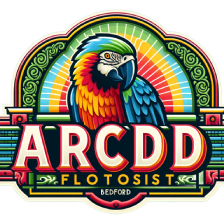Deriving its acronym from “Structured Self-Development,” the term SSF is commonly used in the educational and professional development spheres. Understanding the concept of SSF is paramount for individuals seeking to enhance their skills and knowledge in a structured manner. In this comprehensive guide, we will delve into the nitty-gritty of SSF, simplifying its full form, exploring its significance, benefits, implementation, and FAQs to provide a holistic understanding of this pivotal concept.
What Does SSF Stand For?
SSF essentially stands for Structured Self-Development. As the name suggests, it refers to a structured approach to learning and personal growth, where individuals take charge of their development by engaging in purposeful activities and endeavors. The concept of SSF emphasizes self-driven initiatives aimed at continuous improvement and skill enhancement.
Significance of SSF
Personal Growth and Development
One of the primary significances of SSF is its focus on personal growth and development. By actively engaging in structured self-development activities, individuals can enhance their skills, knowledge, and competencies, leading to improved performance and increased opportunities for advancement.
Self-Accountability
SSF underscores the importance of self-accountability in the learning process. Individuals are responsible for setting goals, identifying areas for improvement, and tracking their progress, fostering a sense of ownership and commitment to their development journey.
Flexibility and Customization
Another significant aspect of SSF is its flexibility and customization. Individuals have the freedom to choose the learning activities, resources, and timelines that align with their unique goals and preferences, making the learning experience more personalized and effective.
Continuous Learning Culture
SSF promotes a culture of continuous learning and improvement within individuals and organizations. By actively participating in self-development initiatives, individuals demonstrate a commitment to lifelong learning and professional growth, contributing to a dynamic and adaptive learning environment.
Benefits of SSF
1. Autonomy and Empowerment
SSF empowers individuals to take control of their learning journey, enabling them to set goals, choose learning activities, and track their progress autonomously. This autonomy fosters a sense of empowerment and ownership over one’s development.
2. Personalized Learning Experience
By allowing individuals to customize their learning path based on their goals and preferences, SSF offers a personalized learning experience tailored to individual needs and learning styles, enhancing engagement and retention of knowledge.
3. Continuous Improvement
Engaging in structured self-development activities facilitates continuous improvement and skill enhancement, enabling individuals to stay ahead of the curve, adapt to changing environments, and seize new opportunities for growth and advancement.
4. Professional Development
SSF plays a vital role in fostering professional development by equipping individuals with the skills, knowledge, and competencies necessary to excel in their respective fields, enhancing career prospects and employability.
Implementation of SSF
1. Goal Setting
The first step in implementing SSF is setting clear and achievable goals related to personal or professional development. These goals serve as a roadmap to guide individuals in choosing relevant learning activities and measuring their progress.
2. Identifying Learning Activities
Once the goals are established, individuals need to identify suitable learning activities, such as online courses, workshops, seminars, or self-study materials, that align with their objectives and interests.
3. Creating a Learning Plan
Developing a structured learning plan outlining the chosen activities, timelines, and milestones is essential for effective implementation of SSF. This plan helps individuals stay organized, focused, and on track towards achieving their developmental goals.
4. Monitoring Progress and Reflection
Regularly monitoring progress, reflecting on learning experiences, and adjusting the learning plan as needed are crucial aspects of SSF implementation. This reflection allows individuals to assess their growth, identify areas for improvement, and make necessary adjustments to enhance their development journey.
Frequently Asked Questions (FAQs)
1. What is the difference between SSF and traditional learning methods?
- Answer: SSF focuses on self-driven learning and personal development, whereas traditional learning methods often involve structured classroom-based instruction and guidance from educators.
2. How can I stay motivated while engaging in SSF activities?
- Answer: Setting clear goals, tracking progress, seeking support from peers or mentors, and rewarding yourself for milestones achieved can help maintain motivation during SSF.
3. Are there specific resources or platforms recommended for SSF?
- Answer: Various online platforms, such as e-learning websites, skill development apps, and professional networking sites, offer a wide range of resources and courses suitable for SSF.
4. Can SSF be applied in a corporate setting for employee development?
- Answer: Yes, SSF principles can be implemented in a corporate environment to foster employee development, continuous learning, and skill enhancement, contributing to a culture of growth and excellence.
5. How can SSF benefit freelancers and independent professionals?
- Answer: SSF can benefit freelancers and independent professionals by enabling them to upskill, expand their knowledge base, and enhance their competitiveness in the ever-evolving market landscape.
In conclusion, understanding SSF and embracing its principles can pave the way for personal and professional growth, empowering individuals to take charge of their development journey and unlock their full potential. By leveraging the flexibility, autonomy, and continuous improvement ethos of SSF, individuals can embark on a transformative learning experience that fosters lifelong learning, skill enhancement, and career advancement.


